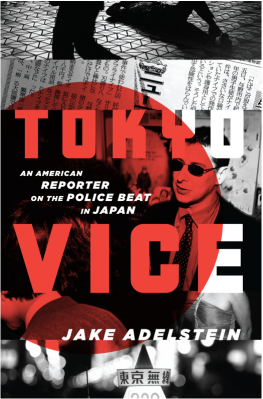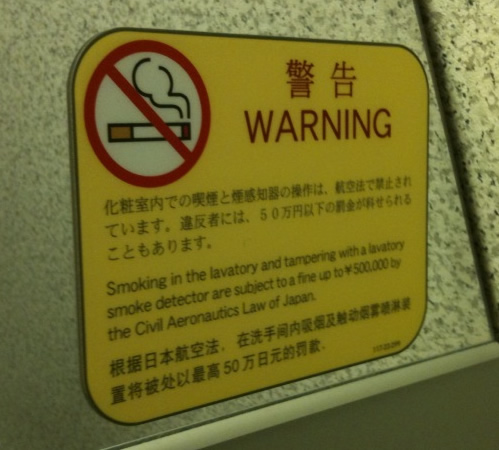This has been a hot topic in American legal discourse recently thanks to the U.S. Supreme Court’s decision in Citizens United vs. Federal Election Commission, which upheld the notion that corporations have the right to free speech — in this case, the freedom to spend money to defame Hillary Clinton during the Democratic primaries, which was previously banned for corporations under election finance statutes. You can read the whole opinion here (PDF), but it is long, and filled with discussion of the historical concepts of corporations, going back to when the Constitution was written.
The idea of corporations having constitutional human rights seems alien to many American observers and probably bizarre to many Japanese people. So far, the best concise analysis of the subject I have found (in the context of the American case) is this piece by law professor Usha Rodrigues at my favorite “blawg,” The Conglomerate. She points out that even the justices of the Supreme Court did a good job of conflating various types of “corporation,” when in reality a corporation can be a home-office business, a completely non-profit organization or even a type of governmental entity. (Justice John Paul Stevens, who led the left-wing dissent, even brought Tokyo Rose into the argument.)
From this perspective, it becomes more clear that corporate status is not a very good dividing line. It captures Goldman Sachs and the big oil and pharmaceutical companies, but it also captures the Sierra Club, the NRA and all sorts of organizations that *do* have a valuable role in consolidating a force of popular opinion that might not otherwise be expressed.
The real problem for populists, I think, is the fact that political donations are treated as a form of speech. There’s a way to get around this: amend the Constitution. Good luck doing that without a lot of money to run a campaign.
Since this is mostly a Japan blog, I should add that Japan’s Supreme Court ruled similarly, albeit more tersely, on a similar case in 1970 — the Yawata Steel case, outlined in Japanese here. This case was originally brought by a lawyer who held Yawata Steel stock and wanted to stop the company from making political donations. The court’s ruling, which is still law in Japan, was that Japanese corporations have the full array of constitutional human rights “to the extent possible given their nature” (性質上可能な限り). Some extracts from their opinion (available here in Japanese), followed by my English paraphrase:
会社は、一定の営利事業を営むことを本来の目的とするものであるから、会社の活動の重点が、定款所定の目的を遂行するうえに直接必要な行為に存することはいうまでもないところである。しかし、会社は、他面において、自然人とひとしく、国家、地方公共団体、地域社会その他(以下社会等という。)の構成単位たる社会的実在なのであるから、それとしての社会的作用を負担せざるを得ないのであつて、ある行為が一見定款所定の目的とかかわりがないものであるとしても、会社に、社会通念上、期待ないし要請されるものであるかぎり、その期待ないし要請にこたえることは、会社の当然になしうるところであるといわなければならない。
Companies are formed for the purpose of performing a particular business, but this does not mean that they can only act in direct furtherance of the purposes listed in their articles of incorporation. Companies, like individuals, are part of the state, their localities and their regional societies, and have responsibilities toward those entities. Even if a certain type of act is beyond the purposes of the company as provided in its articles of incorporation, such an act should still be allowed to the extent that it is expected and demanded of the company in the course of its social relations.そしてまた、会社にとつても、一般に、かかる社会的作用に属する活動をすることは、無益無用のことではなく、企業体としての円滑な発展を図るうえに相当の価値と効果を認めることもできるのであるから、その意味において、これらの行為もまた、間接ではあつても、目的遂行のうえに必要なものであるとするを妨げない。災害救援資金の寄附、地域社会への財産上の奉仕、各種福祉事業への資金面での協力などはまさにその適例であろう。会社が、その社会的役割を果たすために相当を程度のかかる出捐をすることは、社会通念上、会社としてむしろ当然のことに属するわけであるから、毫も、株主その他の会社の構成員の予測に反するものではなく、したがつて、これらの行為が会社の権利能力の範囲内にあると解しても、なんら株主等の利益を害するおそれはないのである。
Such acts are not necessarily limited to not-for-profit acts. A company may also (directly or indirectly) find value toward its own development as an enterprise through disaster relief, services to society, funding social welfare projects and other peripheral acts. Appropriate expenses by a company toward these social duties are naturally to be allowed and do not violate shareholder rights or harm shareholder profit.以上の理は、会社が政党に政治資金を寄附する場合においても同様である。憲法は政党について規定するところがなく、これに特別の地位を与えてはいないのであるが、憲法の定める議会制民主主義は政党を無視しては到底その円滑な運用を期待することはできないのであるから、憲法は、政党の存在を当然に予定しているものというべきであり、政党は議会制民主主義を支える不可欠の要素なのである。そして同時に、政党は国民の政治意思を形成する最も有力な媒体であるから、政党のあり方いかんは、国民としての重大な関心事でなければならない。したがつて、その健全な発展に協力することは、会社に対しても、社会的実在としての当然の行為として期待されるところであり、協力の一態様として政治資金の寄附についても例外ではないのである。
The above reasoning also applies to corporate gifts to political parties. The constitution does not expressly mention political parties nor grant them any special status, but implicitly assumes their necessary existence through its general structuring of the representative democracy system. Political parties are the most powerful constituent body of the people’s government, and to participate in their development is naturally to be expected as a social act even by a company. Political donations are a normal component of the cooperation between citizens and their government.




